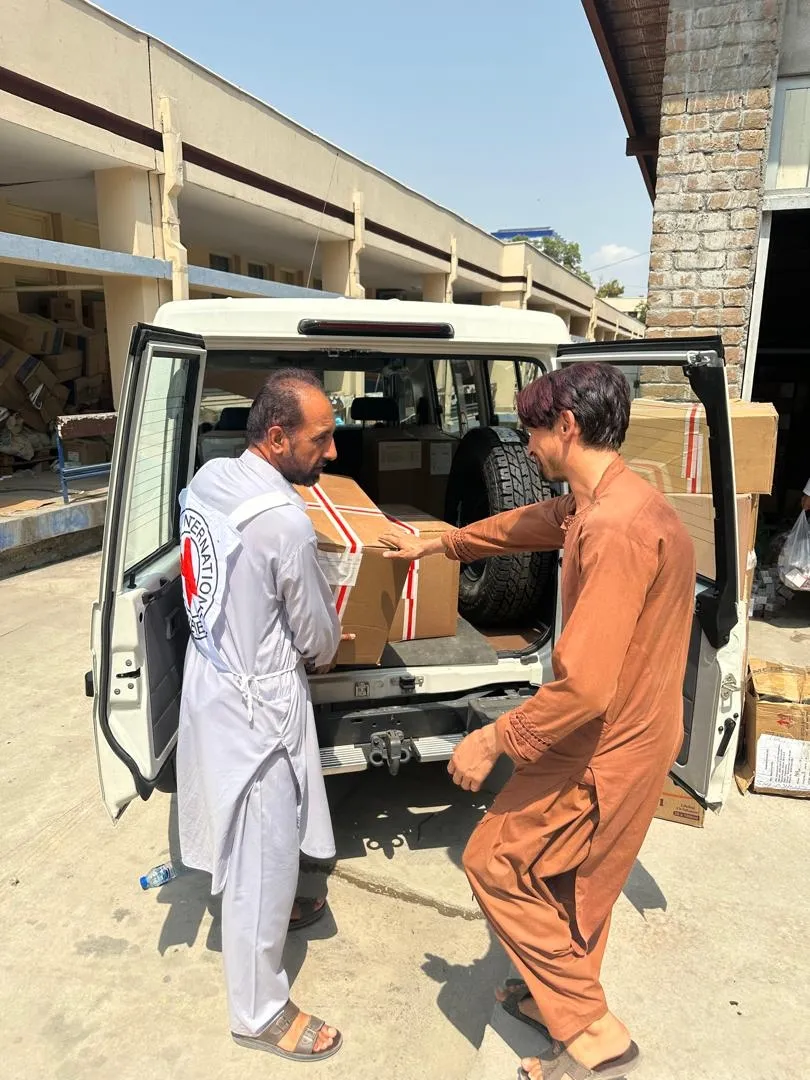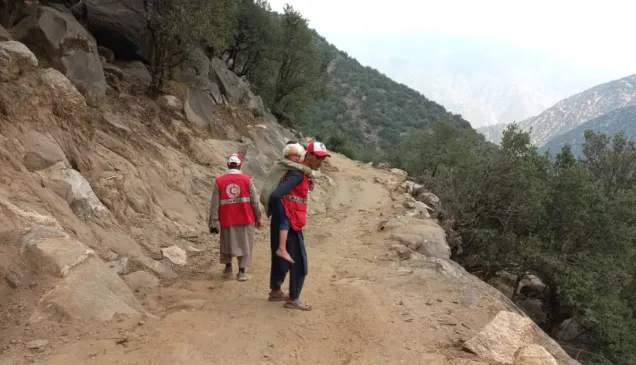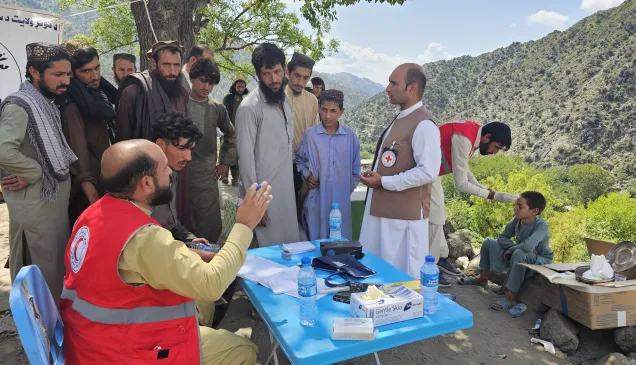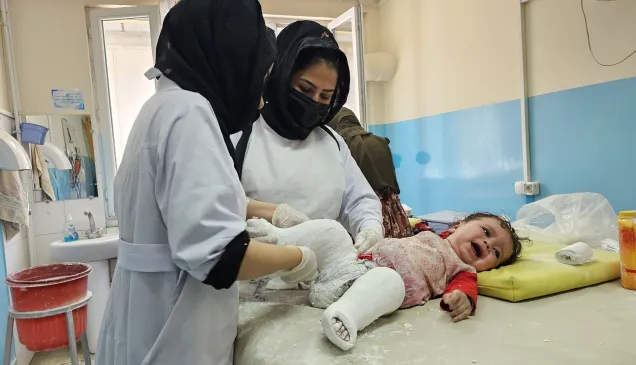Earthquake in Afghanistan: ICRC response
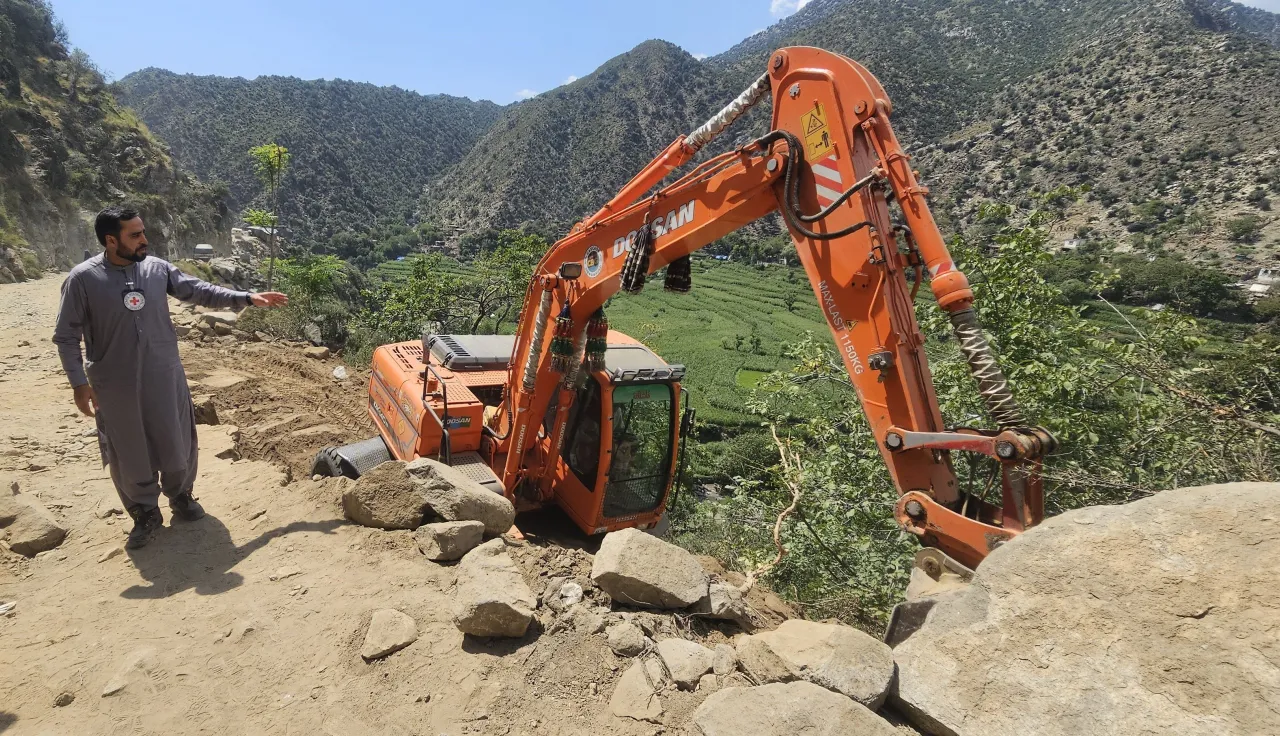
On 31 August 2025, a devastating earthquake of 6.0 magnitude hit Nangarhar, Laghman, and Kunar provinces in Eastern Afghanistan. Authorities have reported that over 2,200 people have been killed, with many more injured or missing under the rubble. Thousands of homes have also been destroyed in a remote and hard-to-reach region which has limited medical infrastructure and is already strained by the arrival of thousands of Afghans recently returned from Pakistan.
Communities mobilized quickly to rescue those struck by the earthquake, and ICRC teams based in Jalalabad, Nangarhar province, are working closely with our partners from the International Red Cross and Red Crescent Movement – notably the Afghan Red Crescent Society (ARCS), whose first responders were quick to react to the tragedy – to deliver essential supplies in the affected area, especially urgently needed support to health facilities. ICRC teams are also supporting efforts to facilitate access to the affected areas and provide water to communities in need, as well as working to prevent families from being separated following the tragedy.
Soon after the tragedy, an ICRC team undertook an initial assessment of affected communities in Nurgal District, Kunar province – which is the most affected area. Our teams are closely monitoring the ongoing situation and emergency medical assistance has already been dispatched to hospitals and relevant authorities, with more aid being planned for the coming days and weeks to support communities in dire need.
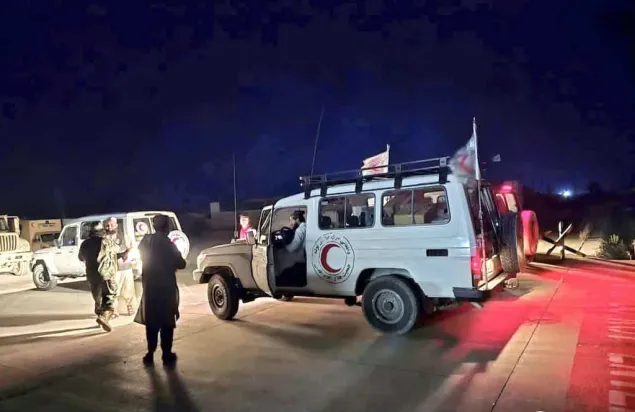
Our response in the first week following the earthquake: An overview
Health
Our response includes medical items donated to the referral hospitals (Nangarhar and Kunar) that are receiving an influx of hundreds of injured patients, including dressing packages (DPs), oral & intravenous packages (IVPs), enough to stabilize 500 severe & 1500 mild & moderate cases, ensuring critical care reaches those in need. Medical supplies were also given to the ARCS Eastern region branch and the Kabul ambulance department that is part of the emergency response. The ICRC physical rehabilitation centre in Jalalabad also provided assistive and mobility devices to Nangahar regional hospital and Kunar hospital in order to serve the needs of people with disabilities.
- 44 emergency medical items, 6 dressing packages, 7 intravenous packages, 142 dose of ready-to-use food donated to ARCS Eastern region branch.
- 40 emergency medical items, 3 intravenous packages, 1 weapon-wounded kits donated to Nangarhar University Teaching Hospital
- 38 Emergency Medical Items, 2 DPs, 2 IVPs to Fatematul Zahra Hospital
- 40 Emergency Medical Items, 3 DPs, 4 IVPs, 1 OP to Nangahar Regional Hospital
- 25 Medical Kits, 45 Emergency Medical Items, 1 DP, 3 OP, 6 IVPs to Kunar Provincial Hospital
- 9 emergency medical kits to Kabul ambulance service
- 200 pairs of crutches, 15 wheelchairs, and 15 walking frames to Nangarhar Regional Hospital
- 50 pairs of crutches, 10 walking frames, and 10 wheelchairs were delivered to Kunar Hospital
Protection/Forensic services to support with the management of the dead:
400 shrouds (200 female/200 male) were delivered from Kabul to Jalalabad for distribution to ARCS teams in the affected areas. Support to ARCS for search and recovery of dead donation of body bags and related personal protective equipment, as well as covering of fuel costs for ambulances and ARCS volunteers.
Water and Sanitation:
Immediate support to ARCS Water and Sanitation Unit was provided, including water tanks, portable latrines, tents, hygiene kits, consumables (chlorine), fuel, jerricans, flexible water tanks, portable generators, lights. 30,000 water bottles of 1.5 litre each were delivered to the ARCS. Technical and financial assistance and support have been provided to the water authorities, and ICRC teams also support road-clearing efforts to facilitate access to areas affected.
Protection of Family Links:
The ARCS received restoring family links emergency kits which included items such as phones, loudspeakers, flashlights, solar lights, and power extensions, and phone credit.
Movement cooperation:
The ICRC provided financial assistance of AFN 15 million (about CHF 170,000) to the ARCS to support their emergency response, including search and rescue operations.
